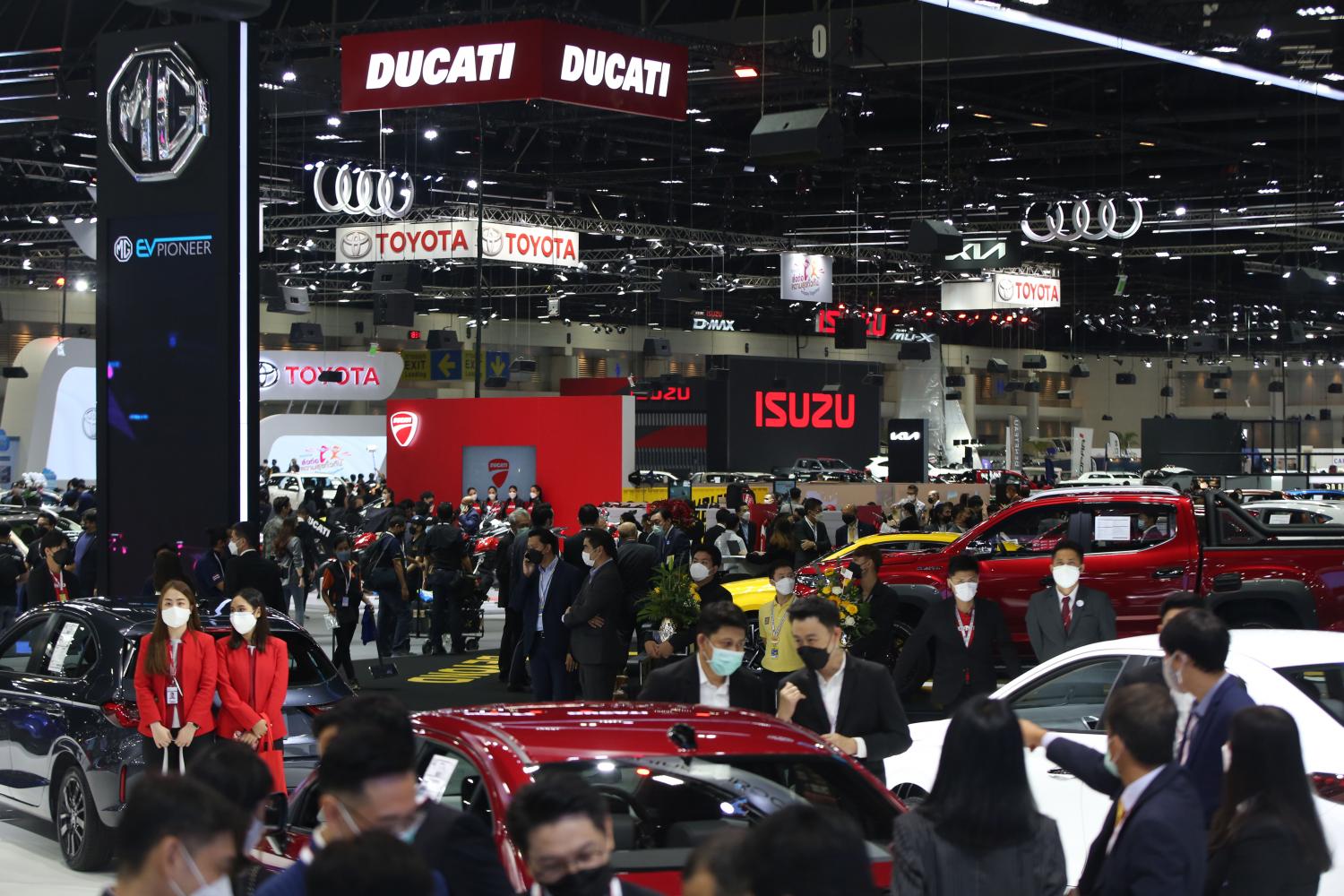
The spread of new Covid-19 variant Omicron brings a fresh concern to automakers as they open Thailand International Motor Expo on Wednesday, hoping to promote the electric vehicle (EV) era in the country.
If Omicron is identified as a virulent strain, it will affect the automotive industry and overall economy, said Takeshi Kasahara, vice-president of Tri Petch Isuzu Sales Co, the local distributor of Isuzu cars.
The company is worried the new variant will cause many countries to implement lockdown measures again, just as the global economy has begun to recover.
"That would deal a blow to the Thai and global economy," he said.
"However, we are confident governments can cope with the new outbreak."
Isuzu does not plan to temporarily close factories in Thailand if the government resorts to lockdown measures because the company has experience in coping with the pandemic.
Chinese sport utility vehicle manufacturer Great Wall Motor (GWM) is also worried about the emergence of Omicron, which may affect its business plan.
"If the Omicron outbreak escalates to the worst-case scenario, the company may need to revise its strategy in Thailand," said Elliot Zhang, president of Great Wall Motor Asean and Thailand.
The company plans to continue investment in Thailand and aims to use the country as a base to export its cars to Malaysia, Vietnam and South Africa.
Isao Sekiguchi, president of Nissan Motor (Thailand), said his company is monitoring the Omicron variant closely.
Global automakers expect car sales in Thailand to reach 700,000 to 750,000 units this year.
However, most are not making predictions about domestic car sales in 2022 because it depends on the Omicron outbreak and the global semiconductor shortage.
Many car companies are aware of the Thai government's new policies to promote EV production.
Isuzu agrees with the government's plan to gradually restructure car taxes to support the EV industry as this gives manufacturers time to adjust their production to the new EV rules.
Nissan wants to work with the government to develop the EV industry. The company expects demand for EVs will continue to increase if the government implements various measures to support EV sales and infrastructure.
As for GWM, it plans to launch nine EV models from 2021-23, in line with its strategy to expand its market in Asean.